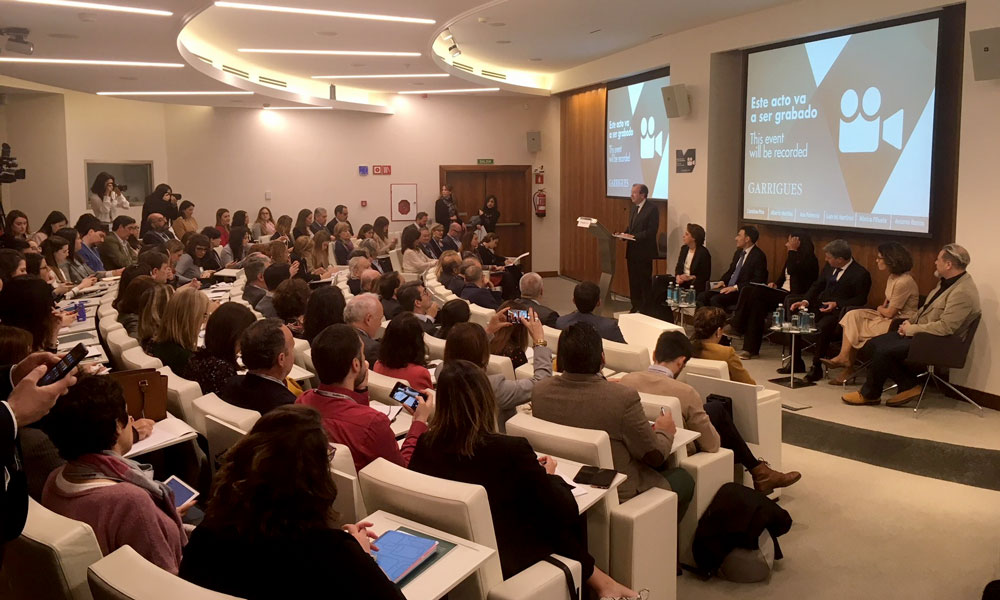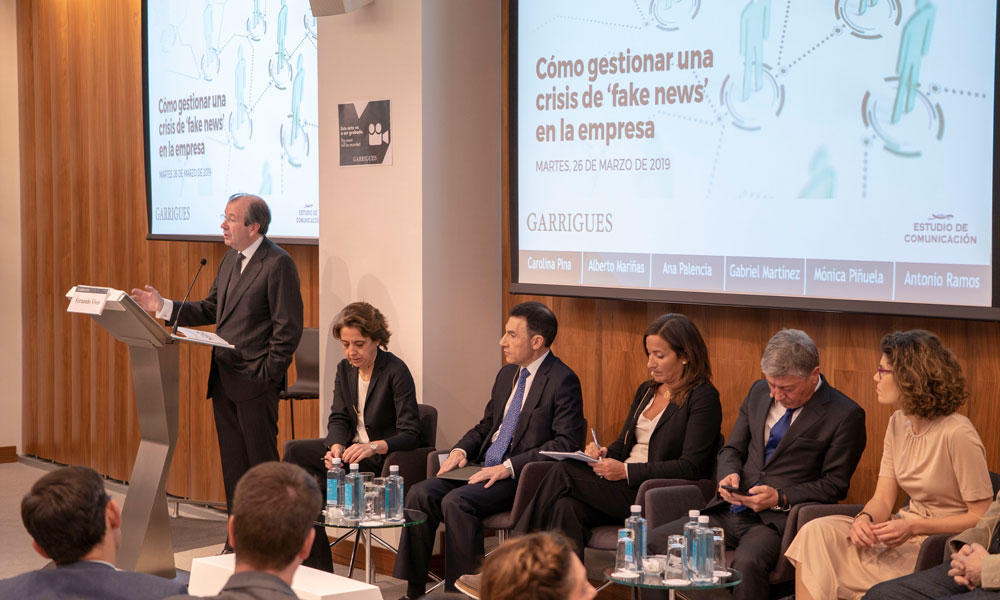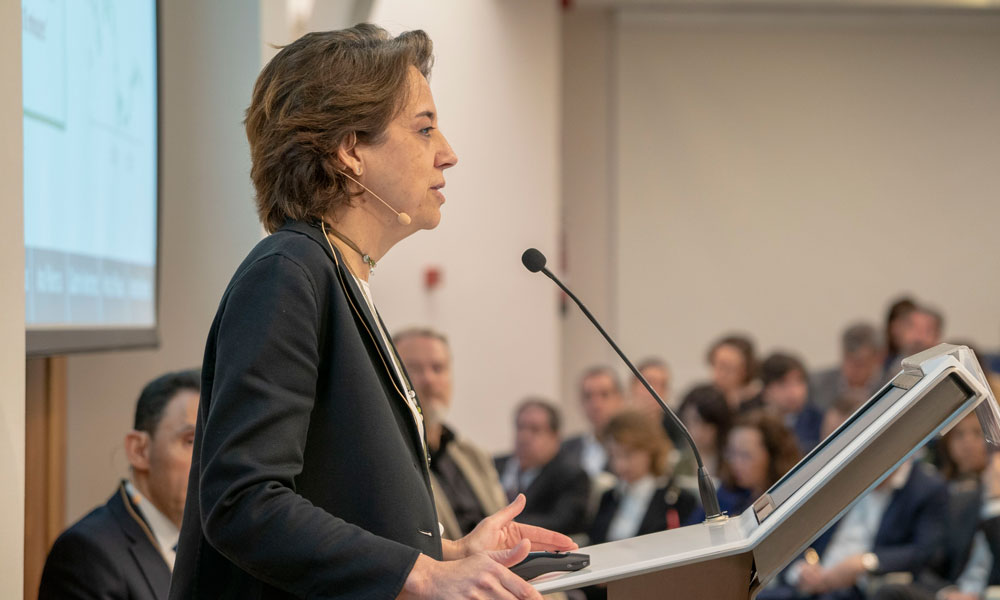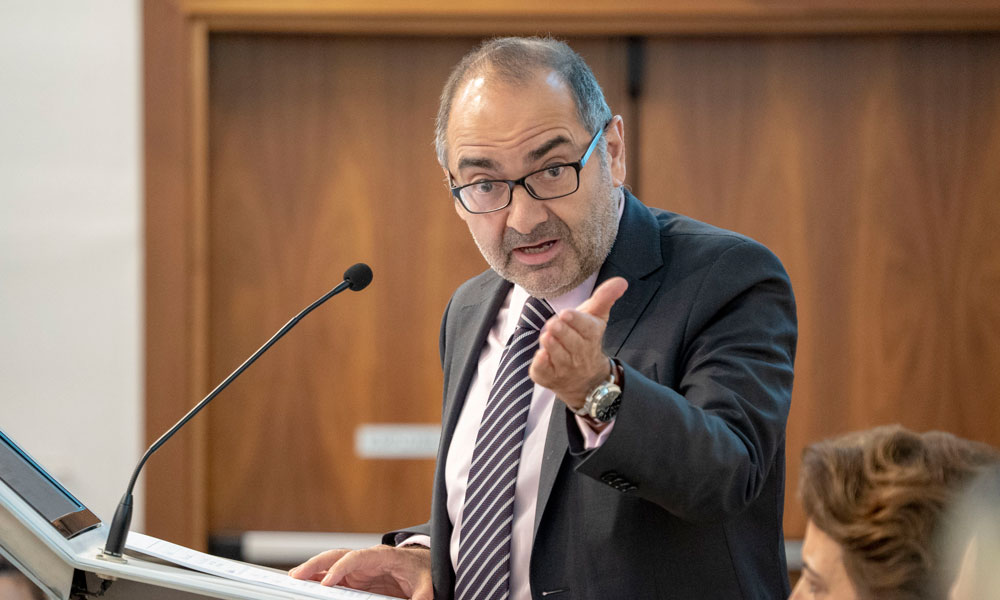When facing a fake news crisis, the communications strategy and the legal strategy must go hand in hand
When responding to a fake news crisis, the communications strategy and the legal strategy must go hand in hand. This was one of the conclusions reached during the event How to handle a fake news crisis - Legal and communications strategies, organized by Garrigues and Estudio de Comunicación.
While opening the event, Fernando Vives, Garrigues executive chairman, stated that “the risk lies not only in the fake news itself, but also in how we address it”, emphasizing that fake news must be analyzed “from a legal standpoint, in terms of safeguarding freedom of expression and freedom of economic activity”.
Benito Berceruelo, CEO of Estudio de Comunicación, noted that “journalists and PR professionals have always felt like they were on opposite sides of the trenches. Now, with fake news in the picture, they are united on the same side”.
During the event, Carolina Pina, partner in charge of Media & Telecom at Garrigues, presented the “Protocol for responding to a fake news crisis” prepared by the firm, a road map for companies on what to do from the moment a fake news item appears, from both the legal and the communication standpoints. During her speech, Ms. Pina stated that “there is an important link between disinformation and how it affects a company’s earnings or the value of its shares”. She concluded that “although taking on fake news is no easy task, doing so not only works in favor of the affected party, but of society as a whole”.
Ms. Pina explained that, from a legal standpoint, several courses of action can be taken, from requesting that the online host takes down the content through the Notice and Take Down (NTD) process, if the news item is patently unlawful, to civil suits or criminal complaints. In particular, criminal complaints can be filed against criminal defamation and false accusation or disclosure and revelation of secrets. Civil suits can be based on infringement of the right to honor, the exercise of the right of rectification or the Unfair Competition Law. Data protection regulations are another option in civil suits. However, as Ms. Pina pointed out, it is not always necessary to take legal action against fake news items. Rather, the potential impact of the item must be carefully analyzed and actions must be taken based on the specific circumstances involved.
From the standpoint of communication, the Protocol defines the different levels of severity of a disinformation crisis and the steps to be taken in each case, as well as the communication actions to be rolled out based on the intensity of the crisis and the materials to have ready.
The different speakers shared their experiences in this arena. Alberto Mariñas, partner and head of the Digital Area at Estudio de Comunicación, stated that “the most important thing in a fake news crisis is that it doesn’t catch us unaware”. He explained that fake news involves intentional lies crafted with emotional elements to better grab the target audience. Moreover, “they are ever more outrageous, more in your face, and they travel farther”.
Ana Palencia, Unilever’s Communications Director, advised that “stakeholder efforts are essential: any trust we have already banked with them means we will get better treatment during a crisis”.
For Gabriel Martínez, Deputy General Manager and Communications Director at Banco Sabadell, we are living in a time when “journalism has lost the monopoly on information, although people still put more stock in the offline world, even if it is less viral”. Consequently, “journalists continue to be the litmus test for democracy”.
Mónica Piñuela, Director of Communications at Pfizer, explained that because her company operates in a highly regulated sector, it is subject to additional obligations: “If fake news appears about a medication, we have to keep a close eye on it. We may even be required to report it to the Ministry of Health”. She added that Pfizer strives to be “as proactive as possible, to safeguard healthcare and to protect patients that are powerless against fake news items”.
Lastly, Antonio Ramos, expert in cyber intelligence and online influence campaigns, cautioned that “in order to avoid the perfect storm, companies must stay one step ahead and have corporate intelligence departments that protect not only their CEOs but also their brands and the very industries in which they operate”.
To conclude, Sonia Franco, Director of Communications and Marketing at Garrigues and moderator of the event, highlighted the importance of remaining honest and transparent.
Contacts
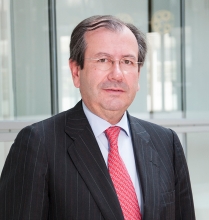

-
+34 91 514 52 00

